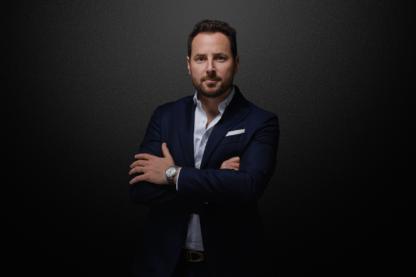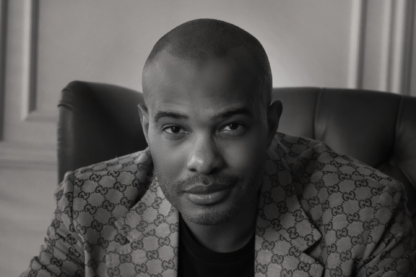In this exclusive interview led by Alexander Chetchikov, President of the World Luxury Chamber of Commerce, Dr. Aradhana Khowala, one of the world’s foremost experts on travel, tourism, and hospitality, shares her visionary perspective on the future of luxury travel. With over 24 years of global experience spanning five continents and collaborations with more than 85 countries, Dr. Khowala has been at the forefront of pioneering regenerative tourism models that intersect luxury hospitality, wellness, and sustainable growth.
As CEO of Aptamind Partners, the strategic consultancy renowned for guiding governments and emerging destinations toward regenerative tourism development, she brings unmatched insights shaped by her leadership roles on multi-billion-dollar projects like Saudi Arabia’s NEOM and the Red Sea Global initiative. Recognized repeatedly as one of the most influential leaders in global hospitality, her work engages presidents, prime ministers, and international organizations to harness tourism as a powerful catalyst for economic vitality, climate action, and human progress.
In this in-depth conversation, Khowala argues that the definition of luxury is undergoing a profound transformation, from excess and indulgence toward meaningful experiences that leave a lasting positive legacy for communities and the planet. Together with Chetchikov, she explores how the next decade will redefine what it means to be truly “luxury” in an industry confronting unprecedented environmental and social challenges.
Alexander Chetchikov: Aradhana, with your leadership role at Aptamind Partners and your involvement in regenerative tourism, how do you see the luxury travel industry evolving in the next decade, particularly in terms of sustainability and environmental impact?
Aradhana Khowala: Everyone talks about sustainability. For me, “sustainability is the floor, not the ceiling”. Sustainability keeps you from doing harm; regeneration actively leaves a place better than you found it. A regenerative hotel doesn’t just offset its carbon footprint – it rewilds land, revives coral reefs, and empowers local communities. In my world of tourism, luxury without regeneration isn’t luxury – it’s liquidation. In other words, sustainability is survival. Regeneration is legacy. And in luxury, legacy sells.
“The next decade will kill off luxury as we know it. Not because consumers can’t afford it, but because they won’t tolerate it. Regeneration isn’t the future of luxury, it’s the only version of it that will survive.” – Dr. Aradhana Khowala
Alexander Chetchikov: Luxury has always thrived on scarcity, excess, and the idea of “more is more.” Can regenerative luxury, which demands restraint and responsibility, ever truly seduce the ultra-wealthy?
AK: If your definition of luxury still starts with excess, you’re already obsolete. The new status symbol isn’t what you take – it’s what you give back. Regeneration isn’t the future of luxury, it’s the only version of it that will survive. And for that, we have to stop framing “less” as a compromise. The highest form of indulgence today is meaning – an experience so rare it cannot be replicated or bought twice. Take the Maldives’ Soneva resorts: solar-powered, waste-free, yet charging among the highest rates globally because guests are buying into an ethos, not just a villa. The elite no longer want to be the first to have something – they want to be the only ones to have experienced it. Regeneration delivers that. In the future, the only luxury worth having will be the one the planet can afford to keep.
Alexander Chetchikov: Conventional wisdom says luxury and mass-market trends exist on opposite ends. Why do you argue the next big shift in luxury will actually come from the grassroots?
AK: Look at how farm-to-table went from rural co-ops to Michelin-starred menus. Or how streetwear from subcultures reshaped billion-dollar fashion houses. In luxury tourism, the next revolution will come from hyper-local, culturally rooted practices — think Maasai-led conservation safaris or local-owned regenerative lodges. Luxury brands that only innovate from the boardroom with international chains to attract visitors will miss where desire is really being shaped: on the ground.
Alexander Chetchikov: You’ve said “green glamour” is the most dangerous phrase in luxury today. Why?
AK: Because it’s seduction without substance. Green glamour, when done right, is regenerative edge meeting impeccable aesthetics – like The Brando in French Polynesia, where solar power, seawater air-conditioning, and biodiversity restoration underpin barefoot luxury. But when it’s just bamboo straws in a champagne bar, it’s greenwashing with a better dress code. The difference? Whether your sustainability claims survive a forensic audit, not just an Instagram scroll and bought advertising.
Alexander Chetchikov: Luxury brands are obsessed with lifetime customer value. What’s the regenerative equivalent?
AK: Lifetime “place” value. The idea that your brand’s worth is tied to the long-term health, culture, and prosperity of the destinations you touch. A guest might stay once, but the community will “host” you for decades. Brands that destroy the host for a short-term win won’t survive the next era of regulation and reputation risk. The most profitable loyalty program in the next decade will be the loyalty of the planet and the people, not just the guests.
Alexander Chetchikov: You’ve been recognized as one of the most powerful figures in global hospitality. How do you use your platform and influence to drive policy change in tourism, and what are some of the most pressing issues you believe need immediate attention from global leaders?
AK: I use my platform to break the polite silence that keeps this industry complicit. We romanticise “wanderlust” while bulldozing rainforests for resorts, turning sacred land into selfie backdrops, and flying millions into climate collapse. Tourism is a planetary force; this industry powers 1 in 10 jobs and 10% of global GDP, yet it has no binding climate targets, no global safeguards for cultural heritage, no serious accountability for community displacement, or mandatory social equity frameworks that protect people as fiercely as we protect profit.
I am on a mission to push tourism into the same room as climate negotiators, health ministers, and finance chiefs – because it’s not “just hospitality,” it’s a driver of global stability.
The most pressing issue? Leaders are treating tourism as an economic side hustle instead of a strategic lever for climate, equity, and cultural survival. If we don’t rewrite the rules now, there will be nothing left to market.
Alexander Chetchikov: As someone passionate about supporting startups, how do you identify innovative ventures in the hospitality and tourism space, and what advice would you give to aspiring entrepreneurs looking to disrupt the luxury industry?
AK: In hospitality and tourism, true innovation is about reimagining the value chain so that luxury is inseparable from impact. My advice to entrepreneurs? Forget the pitch decks obsessed with “scaling fast” and “owning market share.” In luxury, speed kills. The ventures I back are the ones brave enough to go slow – to obsess over provenance, craft, and community until they create something so authentic it can’t be replicated at scale without losing its soul. In luxury, the fastest way to disappear is to try to please everyone.
Thank you, Aradhana!
Dr. Aradhana Khowala’s compelling vision calls for a paradigm shift where luxury and responsibility are no longer at odds but deeply intertwined. As she passionately puts it, the future of luxury travel is not just about avoiding harm but actively creating a better world—one regenerative experience at a time.
Follow her journey on LinkedIn: https://www.linkedin.com/in/aradhana-khowala/
Want to read more exclusives? Check out our news and insights: https://worldluxurychamber.com/insights-news/ & sign up for our newsletter here: https://worldluxurychamber.com/wlcc-community/





